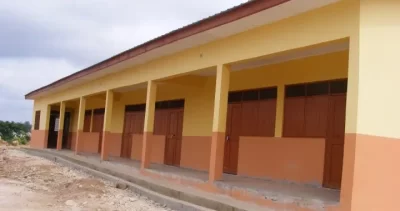In the short term, thousands of new classrooms are required to reduce the large class sizes experienced in Ghana’s urban basic schools, a report r
In the short term, thousands of new classrooms are required to reduce the large class sizes experienced in Ghana’s urban basic schools, a report released by the Africa Education Watch, has said.
The report said the Ministry of Education (MoE) must be intentional in reducing class sizes in urban schools by rolling out a deliberate programme to build more classrooms in overcrowded schools.
“In the medium term, there is the need for an infrastructure policy that approaches school expansion by relying on existing and projected
class sizes and the need to reduce the distance commuted to school,” it said.
The report added “The MoE and the Parliamentary Select Committee on Education must engage the Ministry of Finance on amending the Earmarked Funds Capping and Realignment Act, 2017 (Act 947) to exempt Ghana Education Trust Fund (GETFund), thereby freeing resources for basic education infrastructure expansion.
GHANAS-HIGH-URBAN-CLASS-SIZES-AND-THE-PEDAGOGICAL-APPROACHES-OF-THE-STANDARD-BASED-CURRICULUM-1Download
“In addition, the payment of District Assembly Common Fund (DACF) arrears and timely release of ensuing tranches must be prioritized, as Ghana embarks on its journey to fiscal recovery. Releasing the DACF timely will ensure the completion of some abandoned school projects.”
It further noted that Ghana’s population is youthful, with about 42 percent aged between 0 and 14 years.
Between 2010 and 2021, while the population of Greater Accra grew by about 36%, from 4.01,million to 5.45million), there was only an 11% increase in the number of public basic schools in the Region.
The report added that in a fast-growing lower middle-class municipality like Adentan where the population increased from 78,000 to 111,000 between 2010 and 202112, the number of public primary schools has only increased by 4% in the past ten years.
“Obviously, the growth in Greater Accra’s urban population has outpaced its growth in public basic schools over time, causing pressure and overcrowding in the few available classrooms,” it said.
“Quality learning outcomes can only emerge from the effective implementation of Ghana’s StandardBased Curriculum. However, its effective
implementation depends on the provision of teaching and learning resources, the development and adoption of participatory and creative
pedagogic skills, and most importantly the existence of recommended class sizes that supports participatory and creative teaching and
learning,” the report added.

COMMENTS